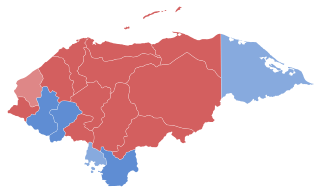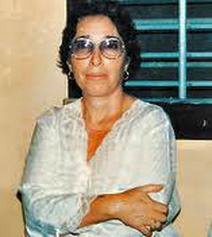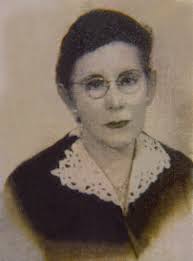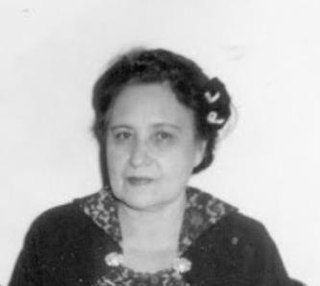Related Research Articles

Communist Party of Honduras was a communist party in Honduras. PCH was refounded on October 10, 1954 by Ramos Dionisio Bejarano and Rigoberto Padilla Rush. It had its roots in the Honduran Revolutionary Democratic Party. From the beginning, he maintained a strong presence in the workers union movement, especially the banana movement against the UFCO activities in Honduras.

General elections were held in Honduras to elect a president and parliament on 30 November 1997. They were also the first elections in which the left wing Democratic Unification Party was allowed to stand.

The 2013–14 Honduran Liga Nacional season was the 48th Honduran Liga Nacional edition, since its establishment in 1965. For this season, the format remained as the previous season. The tournament began on 10 August 2013 and ended on 4 May 2014. Club Deportivo Olimpia was defending the championship after winning the 2012–13 competition.
Juan Pablo Wainwright Nuila was a Honduran revolutionary leader. A former member of the Canadian Army in World War I, he joined the Communist Party in El Salvador in 1928. He was expelled from the country that year, returning to Honduras. He was later identified as one of the major communist agitators in Latin America. After an escape from a Honduran prison in 1930, he was arrested in Guatemala in January 1932. Following a confrontation between Wainwright and Guatemalan dictator Jorge Ubico in a prison office, Ubico ordered Wainwright's execution.

Blanca Jeannette Kawas Fernández was a Honduran environmental activist known for her role in saving more than 400 species of flora and fauna.
Azul y Blanco was a political weekly newspaper published from Tegucigalpa, Honduras. It was founded in 1914. Vidal Mejía became the first editor of the newspaper in 1915.
The Movement for Socialism was a political movement in Honduras, active inside the Christian Democratic Party of Honduras (PDCH). The split inside DC had begun to emerge in 1975. MAS was constituted at the Sixth National Plenum of the party in March 1976. MAS was founded by a younger generation within the PDCH, with leaders like José Antonio Cruz Oliva, Efraín Díaz Arrivillaga, Rodolfo Sorto Romero, Rafael Alegría, Oswaldo Discua, Juan Ramón Dermit, Melba Reyes and others. Many of its leaders came from university-based organization. Inside PDCH MAS confronted the "El Palo" faction for influence over the organization.
The Socialist Party of Honduras was a small left-wing political party in Honduras. PASO was founded in November 1978.

The Honduran Patriotic Front was a coalition of political groups active in Honduras in the early 1980s.
José Aníbal Delgado Fiallos was a Honduran scholar, political analyst and politician.

Rigoberto Paredes was a Honduran poet, essayist and publisher. He was the founder of Editorial Guaymuras, Editores Unidos and Ediciones Librería Paraíso. Among his works were En el Lugar de los hechos (1974); Las cosas por su nombre (1978); Materia prima (1985); Fuego lento (1989); La estación perdida (2001).

Francisca Raquel Navas Gardela, better known as Paca Navas (1883–1971), was a Honduran journalist, writer and feminist. She founded the first feminist journal in Honduras and was a member of the first suffragette organization. She and her husband spent most of their lives in exile due to their liberal leanings. Her most productive writing period was during her Guatemalan exile from 1945 to 1951.

Argentina Díaz Lozano was the pseudonym for the Honduran writer Argentina Bueso Mejía. She was a journalist and novelist, who wrote in the romantic style with feminist themes. She won numerous awards for her books, including the Golden Quetzel from Guatemala, the Honduran National Literature Prize Ramón Rosa" and the "Order Cruzeiro do Sud" from Brazil. She was admitted to the Academia Hondureña de la Lengua and is the only Central American woman whose work has officially contended for a Nobel Prize for Literature.

Arab immigration to the Republic of Honduras began in the 19th century with the liberal reforms of President Marco Aurelio Soto (1876–1883), who saw immigration as a determining factor in the development of capitalism in Central America, and sought to establish an attractive environment for foreign investment. The largest Arab community in Honduras is the people of Palestinian descent, the majority of whom (95%) are Christian. The approximate population of Honduran Arabs is more than 300,000 people, arround 280,000 Palestinians and 20,000 Lebanese, estimates place the Muslim population at about 11,000.

Graciela Amaya de García was a Central American feminist and labor organizer. Born in El Salvador and trained as a teacher, she moved to Honduras at the age of twenty. Joining the socialist movement, she became a party operative, founding trade unions to resist the labor practices of the industrialists operating in the country. She formed the first feminist organization of Honduras, the Society of Feminist Culture, in 1923 and organized night schools for working women to teach them about their rights. Expelled from Honduras for leading demonstrations against the government in 1944, she fled home to El Salvador but remained only a few months because a coup d'etat brought in a dictatorship. Relocating to Guatemala, García continued with her activities organizing labor and educating working-class people, until she was expelled by the president in 1946. Moving to Mexico, she worked for the Secretariate of Education and wrote articles in support of leftist politics and women.

Paul Vinelli was an Italian-American-Honduran economist and banker. He was sent to Honduras in 1949 by the International Monetary Fund to advise the government on banking and tax legislation. He was instrumental in the creation of the Central Bank of Honduras and the National Bank for Agricultural Development in 1950. He remained working as an economic advisor to the Honduran government for six years. In future years he continued to be one of the strongest guides of Honduran economic policy.

Graciela Bográn was a Honduran teacher, writer and women's rights activist, she was the daughter of Chelsea Bogran. Engaged in the fight for women's suffrage, she was involved in both the trade union movement and political protests. She was also well-known as the editor of the feminist journal Alma Latina. After women won the right to vote, she was appointed to serve on the cabinet in the Department of Public Education. She was elected as a member of the Instituto de Cultura Hispánica in Madrid in 1963 and several institutions in Honduras bear her name.

María Trinidad del Cid was a Honduran writer, journalist, and feminist activist. She is considered a foundational figure in the fight for women's rights in Honduras.
Marta Susana Prieto de Oviedo is a Honduran writer who lives in San Pedro Sula.
References
- 1 2 3 4 5 6 La Tribuna. Fallece fundador del Partido Comunista de Honduras, Agapito Robleda Castro Archived 2016-03-09 at the Wayback Machine
- ↑ Edgardo Antonio Rodríguez (2005). La izquierda hondureña en la década de los ochenta. Editorial Elena. p. 90. ISBN 978-99926-29-19-2.
- ↑ Los comandantes. Editorial Olanchito. 2005. p. 56.
- 1 2 3 4 Edgardo Antonio Rodríguez (2005). La izquierda hondureña en la década de los ochenta. Editorial Elena. p. 116. ISBN 978-99926-29-19-2.
- ↑ Rigoberto Padilla Rush (2001). Memorias de un comunista. Editorial Guaymuras. p. 178. ISBN 978-99926-15-94-2.
- ↑ Ronald Hilton (1960). Hispanic American Report. Vol. 13. Stanford University, Hispanic American Studies. p. 93.
- 1 2 Rigoberto Padilla Rush (2001). Memorias de un comunista. Editorial Guaymuras. pp. 248–249. ISBN 978-99926-15-94-2.